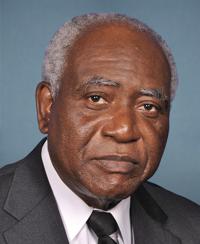0
0
0
Sickle Cell Disease Comprehensive Care Act
12/15/2023, 3:55 PM
Summary of Bill HR 1672
The Bill 118 hr 1672, also known as the Sickle Cell Disease Comprehensive Care Act, aims to improve the care and treatment of individuals with sickle cell disease in the United States. The bill recognizes sickle cell disease as a significant public health issue and seeks to address the disparities in access to care and treatment that individuals with sickle cell disease often face.
The key provisions of the bill include:
1. Establishing a national surveillance program to track the prevalence of sickle cell disease and monitor the quality of care provided to individuals with the disease. 2. Improving access to comprehensive care for individuals with sickle cell disease, including preventive services, treatment, and management of complications. 3. Increasing funding for research on sickle cell disease, with a focus on developing new treatments and improving outcomes for individuals with the disease. 4. Providing education and training for healthcare providers to ensure they have the knowledge and skills to effectively care for individuals with sickle cell disease. 5. Supporting community-based organizations that provide services and support to individuals with sickle cell disease and their families. Overall, the Sickle Cell Disease Comprehensive Care Act aims to address the challenges faced by individuals with sickle cell disease and improve their quality of life through better access to care, treatment, and support services. The bill has bipartisan support and is seen as a crucial step towards improving the lives of individuals with sickle cell disease in the United States.
The key provisions of the bill include:
1. Establishing a national surveillance program to track the prevalence of sickle cell disease and monitor the quality of care provided to individuals with the disease. 2. Improving access to comprehensive care for individuals with sickle cell disease, including preventive services, treatment, and management of complications. 3. Increasing funding for research on sickle cell disease, with a focus on developing new treatments and improving outcomes for individuals with the disease. 4. Providing education and training for healthcare providers to ensure they have the knowledge and skills to effectively care for individuals with sickle cell disease. 5. Supporting community-based organizations that provide services and support to individuals with sickle cell disease and their families. Overall, the Sickle Cell Disease Comprehensive Care Act aims to address the challenges faced by individuals with sickle cell disease and improve their quality of life through better access to care, treatment, and support services. The bill has bipartisan support and is seen as a crucial step towards improving the lives of individuals with sickle cell disease in the United States.
Current Status of Bill HR 1672
Bill HR 1672 is currently in the status of Bill Introduced since March 21, 2023. Bill HR 1672 was introduced during Congress 118 and was introduced to the House on March 21, 2023. Bill HR 1672's most recent activity was Referred to the Subcommittee on Health. as of March 31, 2023
Bipartisan Support of Bill HR 1672
Total Number of Sponsors
1Democrat Sponsors
1Republican Sponsors
0Unaffiliated Sponsors
0Total Number of Cosponsors
0Democrat Cosponsors
0Republican Cosponsors
0Unaffiliated Cosponsors
0Policy Area and Potential Impact of Bill HR 1672
Primary Policy Focus
HealthComments
Sponsors and Cosponsors of HR 1672
Latest Bills
National Defense Authorization Act for Fiscal Year 2026
Bill S 1071December 11, 2025
Electric Supply Chain Act
Bill HR 3638December 11, 2025
State Planning for Reliability and Affordability Act
Bill HR 3628December 11, 2025
Increasing Investor Opportunities Act
Bill HR 3383December 11, 2025
ASCEND Act
Bill S 1437December 11, 2025
Providing for consideration of the bill (H.R. 3001) to advance commonsense priorities.
Bill HRES 486December 11, 2025
Snow Water Supply Forecasting Reauthorization Act of 2025
Bill HR 3857December 11, 2025
Federal Firefighters Families First Act
Bill HR 759December 11, 2025
ADS for Mental Health Services Act
Bill S 414December 11, 2025
Providing for consideration of the bill (H.R. 2550) to nullify the Executive Order relating to Exclusions from Federal Labor-Management Relations Programs, and for other purposes.
Bill HRES 432December 11, 2025
Sickle Cell Disease Comprehensive Care Act
Bill S 904December 15, 2023
